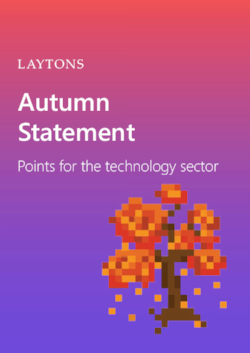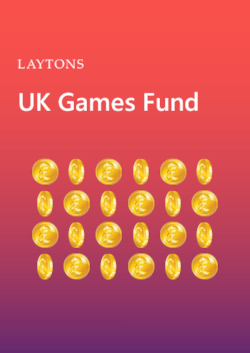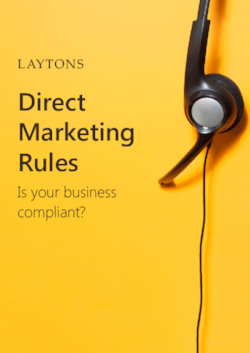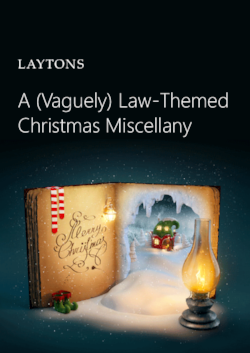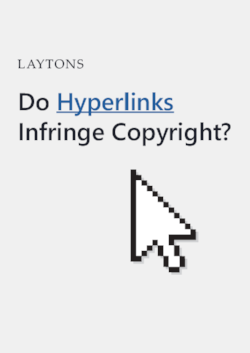
Our broad experience and familiarity with IP and IT issues enables our advice to be commercially relevant and user-friendly as well as technically astute.
In addition to working seamlessly with other practice groups to support our clients, our IPT team advises on the full range of contentious and non-contentious IP/IT matters. Our work includes exploitation, protection and enforcement of brand and technology, research and development contracts, inward and outward IP licensing, IP restructuring and as IT and web-related contracts and commercial issues.
In addition to legal qualifications, some of our lawyers have a science and engineering background and have experience of working in industry. This combination of knowledge and skills provides a synergy that enables us to work more effectively on legal matters where technical understanding is important.
Related Expertise
Our Team
News & Insights
Data serves a vital role in training artificial intelligence (AI) models. Data is scraped from various sources including websites. The term data mining and data scraping are similar but not quite identical in nature. It is similar in the sense that both involved bulk copying of data.
Another form of generative artificial intelligence (AI) that has been frequenting the headlines is AI-generated music. A well-known example being the viral Drake and The Weeknd song titled “Heart on My Sleeve” which has now been pulled off Apple Music and Spotify. This AI-generated song produced remarkably realistic renditions of Drake and The Weeknd’s voices.
Generative Artificial Intelligence (AI) is a set of algorithms trained on large volumes of data to generate output like images, text, music and videos. A popular example of this is ChatGPT which is a large language model (LLM) developed by OpenAI. Other generative AI also include DALL-E which generates art from text descriptions.
As part of Budget 2023 speech today the UK chancellor, Jeremy Hunt, has introduced several support measures for the Artificial Intelligence (AI) sector.
Photo licensing agency Getty Images is suing Stability AI for copyright infringement. The news comes after three artists filed papers in the US District Court of California allege that UK company Stability AI (and Ors), which uses artificial intelligence to generate images, “downloaded or otherwise copied billions of copyrighted images without permission”, to create its image generator software product Stable Diffusion.
The rapid development of Artificial Intelligence (AI) technology leaves us to question whether the English Civil Liability rules of contractual, and extra-contractual liability for loss and damage caused by AI are fit for purpose.
Artificial intelligence (AI) paves way for innovative technology advancement which benefits society, but there is also a potential for it to affect individuals' rights and freedoms. Consumers have become increasingly concerned about data security in recent years, resulting in "techlash" - a growing negative feeling against large tech companies.
On Friday 6 May London’s Christie’s hosted the second Libralex Art Law Conference in collaboration with The International Art Market Studies Association (TIAMSA) and Christie’s Education: “Blockchain and the Art Market: Hype or Revolution?” with a Keynote Speech from, Christie’s Deputy Chairman of 20th & 21st Century Art EMEA, Dirk Boll.
Oatly is an oat based milk substitute. Its Swedish manufacturers sell it under a number of trade marks, based around OATLY. Its quirky packaging is designed to create an informal and less corporate image, with features sometime known as “wackaging” (see also Innocent smoothies).
In a significant legal decision, the Court of Session in Edinburgh has ruled that Lidl’s Hampstead Gin infringes William Grant & Sons’ intellectual property rights in its successful Hendrick’s brand.
In our article: Laytons Artificial Intelligence (AI) Series: Artificial Intelligence (AI) and legal liability — Laytons ETL we looked at how the rapid development of Artificial Intelligence (AI) technology leaves us to question whether the English Civil Liability rules of contractual, and extra-contractual liability for loss and damage caused by AI, are fit for purpose.
It is vital that you review the key terms of your business or organisation’s existing contracts and those which it may be planning to enter into in preparation for Brexit.
There has been much speculation on what will happen to European IP rights in the UK following Brexit. Rights holders now have greater clarity following the publication of the draft withdrawal agreement under negotiation between the UK and the EU. Here is a brief synopsis of the main points agreed so far.
The enhancement of e-commerce is one of the important policy issues within the European Union. This guide examines the laws covering e-commerce across multiple jurisdictions including the options to resolve disputes should they arise.
Investment in infrastructure, productivity and research & development were some of the principal focuses of the Autumn Statement; we provide a summary below of some of the key points that affect the technology sector.
Companies that develop video games in the UK, are able to make savings on their corporation tax bill through the Video Games Tax Relief. The Relief can therefore be highly beneficial.
Stage One of the application process (the submission of a two minute video pitch) closed in November 2016 and successful applicants will be invited in January 2017 to make a written application for Stage Two.
We summarise the key direct marketing rules that apply in the UK together with the practical steps that organisations can take to comply with them.
To mark the Season of Goodwill, we have dispensed with the usual lawyers’ briefing format in favour of a series of Christmas-themed, legal(ish) questions.
Evolving case law from the CJEU confirms that links to copyright works which are freely accessible on the internet do not infringe copyright...



























